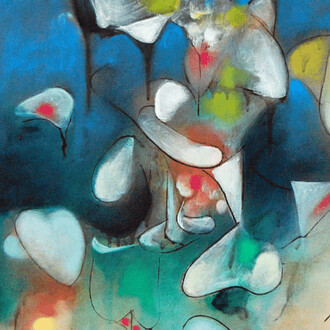Before the weather app, there was the weathervane. These eye-catching rooftop objects have been used throughout history to show the direction of the wind and to help predict the weather. They have aided agriculture, industry, transportation, and trade. The word “vane” comes from the Middle English fane which meant “flag”.
Across the farmlands and cityscapes of New England, weathervanes have held prominent places atop barns, churches, markets, courthouses, as well as other public buildings and private homes. Originally, they were handmade by artisans working with wood or metal. Larger scale manufacturers flourished in the second half of the nineteenth century. They became popular not only as symbols or advertisements, but as ornamental embellishments on houses. Although weathervanes are not as common as they once were, examples still dot rooflines around New England including on Colby’s Miller Library.
Featuring promised gifts to the museum from a distinguished private collection in Maine, and accompanied by an arrangement of folk art and folk-art-inspired works from the Colby Museum’s collection, Into the Wind dives into the history of the American weathervanes, exploring their symbolism, use, manufacture, and trade in the northeastern United States during the nineteenth and early twentieth centuries. Weathervanes tell us more than the direction of the wind. They share with us the ways in which a tool of weather forecasting reveals unknown parts of our history and the imagination and talent of the early craftspeople who made them.
Justin McCann is the guest curator of Into the wind: American weathervanes. The accompanying collection arrangement is curated by Beth Finch, head curator, with Maria DiBari, Colby class of 2026.












